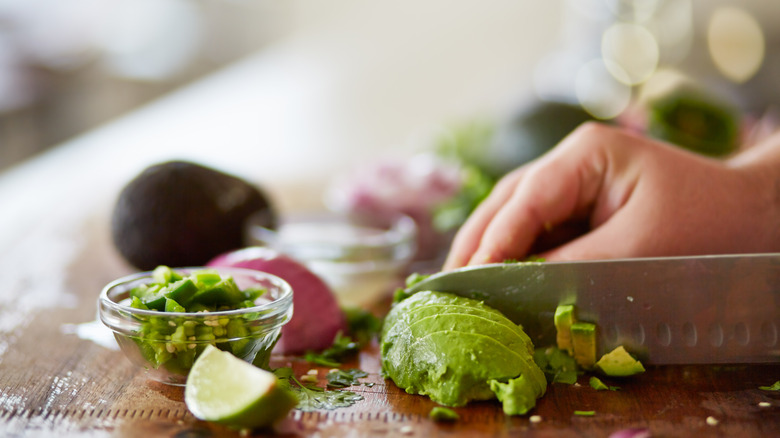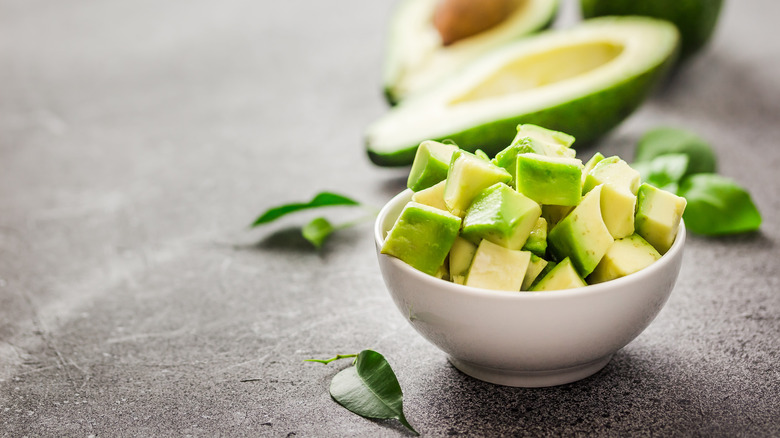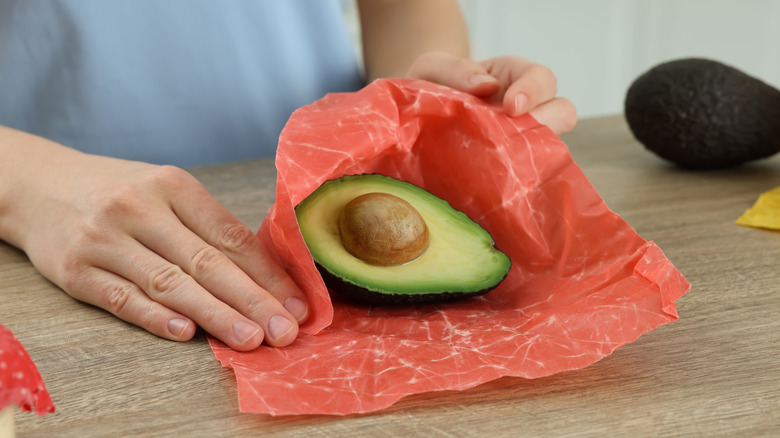Why You Should Avoid Cutting Avocados With Metal Knives
When cutting open an avocado, most of us reach for a regular, metal kitchen knife. However, this seemingly harmless choice of tool can spell disaster for the sensitive fruit. Avocados naturally go through an oxidation process, turning brown as their flesh is exposed to air. As all avocado lovers know, browning is inevitable, but what many don't realize is that the process can also be accelerated by contact with certain materials.
Commonly used knife metals like iron and copper are prone to rusting, which is another form of oxidation. When these metals come into contact with the flesh of an avocado, it spurs the oxidation of the fruit, causing it to brown more quickly than usual.
To slow down avocado ripening and browning, set that metal knife aside in favor of a ceramic knife since that material doesn't rust. That being said, cutting into an avocado immediately exposes it to air, so it's best to do so only right before you intend to use it.
The less contact between your knife and avocado, the better
No matter the type of knife you use to cut up an avocado — metal, ceramic, or plastic — it's always a good rule of thumb to minimize contact between the fruit and the tool. If you plan to consume the avocado right away, exposure to oxygen and other materials is less of a concern, but if you're prepping the avocado for later, you should take all measures to limit browning.
One way to protect its freshness is by leaving the pit in place for as long as possible. When you scoop out the pit, you're not only exposing more of the flesh to air, but also to whatever tool you're using. Likewise, dicing and cross-hatching an avocado also increase the surface area exposed, so in all cases, leaving the avocado whole will always be the best move.
Of course, sometimes meal prep is unavoidable. In these cases, use a ceramic knife if possible, limit the cuts you make, and then store your avocado with sliced onions since the sulfites in alliums help combat oxidation.
What other methods slow the oxidation of avocados?
As you can imagine, storing your avocados with onions isn't the only method proven to slow oxidation of the fruit. You can also brush the exposed surfaces of the avocado with lemon/lime juice, olive oil, or even honey, as these create a barrier between the flesh and the air. Regardless of which you choose, you should then wrap the avocado tightly in paper or foil, or store it in an airtight container to further limit exposure.
For the best effects, however, you should consider blanching the fruit. Simply boil them for 10 seconds, killing the enzymes responsible for oxidation, and then cool them in an ice bath. Once the fruit has cooled, you can remove the pits and brew them for an energizing tea.
In terms of storing the rest of it, you can further extend its green color and firm texture with one of the aforementioned storage hacks. Just like that, your avocado — even chopped up — will last up to four days before browning.



